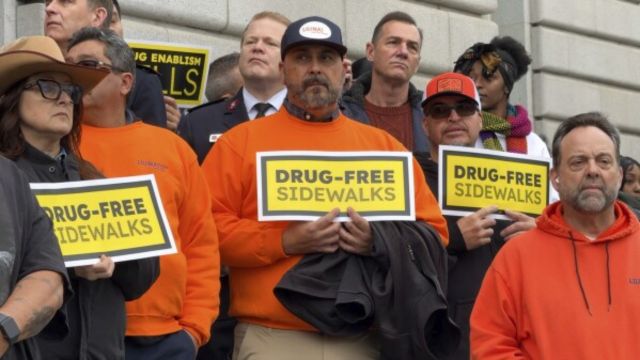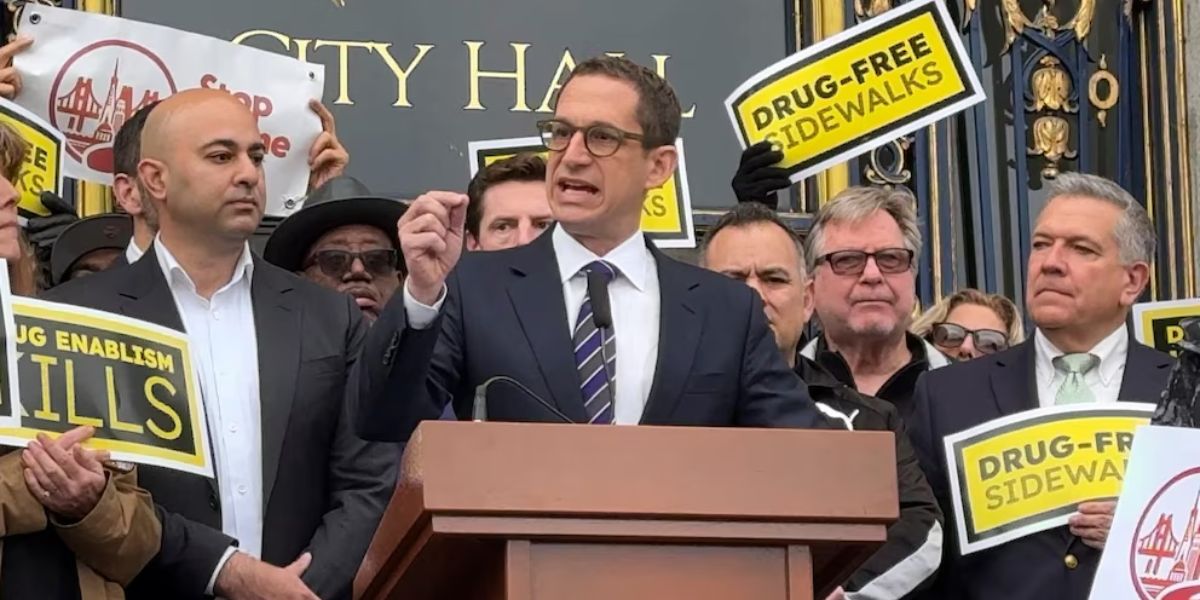The Board of Supervisors in San Francisco is about to give newly elected Mayor Daniel Lurie more authority and latitude to speed up the city’s response to the fentanyl crisis that has transformed sidewalks into outdoor hotspots for drug use and homelessness.
Supervisors will vote on the proposal Tuesday, which removes the need for competitive bidding for some contracts and permits the administration to raise private funds to recruit additional behavioral health and public safety professionals and swiftly create 1,500 shelter beds.
Until he defeated Mayor London Breed’s reelection campaign last year, Lurie, a Levi Strauss heir and founder of an anti-poverty group, had never held public office. This is his first piece of legislation.
Six votes are already required for the measure to pass, and more votes are probably going to be added on Tuesday.
How desperate supervisors are for a solution is demonstrated by the 11-member board giving up monitoring authority for an endeavor lacking a clear plan or metrics.
It also indicates that they have accepted, for the time being at least, a political outsider who promised to cooperate in order to develop sensible solutions.
At last week’s meeting of the budget and finance committee, which she leads, Supervisor Connie Chan stated that board supervision helps guarantee that taxpayer funds are used responsibly and openly.
However, she also praised the mayor’s readiness to make concessions, stating that this is “truly an unprecedented time” that necessitates extraordinary measures. Breed’s relationship with the progressive members of the board, including Chan, was icy.
Public drug usage and homeless tent encampments increased during the COVID-19 pandemic, despite San Francisco’s longstanding liberal political reputation.
In 2023, the number of overdose deaths in San Francisco that were caused by the powerful and inexpensive fentanyl hit a record 800.

Frustrated citizens responded by supporting crackdowns on homelessness on the streets and voting to increase police powers. More moderate Democrats were also elected to the board.
According to Lurie’s proposal, the city would be able to avoid the competitive bidding and procurement process for grants, contracts, and leases pertaining to public safety hiring, addiction, and homelessness.
New leases could be signed by city departments without board approval. His goal is to establish a drop-off location that is open around-the-clock, police-friendly, and an alternative to a jail.
In contrast to the mayor’s initial proposal of $50 million, supervisors would only have 45 days to vote on contracts up to $25 million or give up their control.
In contrast to the initial five years, expedited contracting would expire in just one year.
According to Laura Thomas, the nonprofit’s drug policy expert and senior director of HIV & harm reduction policy, the San Francisco AIDS Foundation is against the idea because it is devoid of metrics and specifics, such as how it will truly lower fentanyl usage.
She hopes the mayor will not support programs that force people into treatment, which have been proved to be ineffectual and frequently counterproductive, but she does commend him for wanting additional housing and treatment resources.
VA to Bring Most Employees Back to Office, Ending Remote Work on February 24
“We want to know more about what the proposal is,” Thomas stated on Monday. “We’re raising notes of concern and we want to know more information before we can support it.”
Legislative analyst Nicolas Menard said during Wednesday’s budget and finance committee that removing competitive bids would probably raise service costs and “create opportunities for waste, fraud, and abuse.”
New Haven Police Shooting Fatality: Inspector General’s Preliminary Report Now Available
Although the exact financial impact is uncertain, the impacted city departments have a budget of slightly more than $1 billion for grants and contracts.
“I need to be very clear that you’re giving up a lot here,” he stated.
In a statement issued later that day, Lurie stated that with the ordinance, “we are no longer looking the other way — we are treating the fentanyl crisis like the emergency it is.” Nevertheless, it sailed out of committee to the full board with a unanimous endorsement. “City Hall is entering a new era.”







Leave a Comment